Prosecutors from Manhattan DA Alvin Bragg's office accused Daniel Penny's defense attorneys of racism during the jury selection process, which finally concluded almost two full weeks into the high-profile New York trial.
"The defense has been striking people based on their race," assistant district attorney Dafna Yoran, who's prosecuting Penny on behalf of Bragg, claimed in the Manhattan courtroom Wednesday morning.
Bragg's underling insisted that the defense had used eight out of their nine no-questions-asked strikes to dismiss "people of color." Yoran counted "five blacks, two Hispanics, and one Asian" among the potential jurors asked to be stricken by the defense.
To which, Penny's lawyer, Thomas Kenniff, called the accusation "outrageous," considering that one of the jurors selected is a black male.
According to ABC7 New York, Yoran then filed a particular motion called a Batson challenge alleging that the defense used their peremptory strikes on the basis of race. The landmark U.S. Supreme Court case Batson v. Kentucky ruled that using peremptory challenges to exclude jurors solely on their race violates the Equal Protection Clause of the Fourteenth Amendment.
Judge Maxwell Wiley, who's presiding over the proceedings, directed the defense to individually explain their reasons for the excusal requests and offer "racially neutral explanations."
Among the defense's dismissals, one of the prospective jurors was a black woman with purple hair. "She can have whatever hair she wants, but it's outside the mainstream appearance," Kenniff said, noting: "I believe she gave answers that were inconsistent." The main cause for concern was not her hair color, he continued; it was the fact that she struggled with homelessness, putting her in a position to "sympathize with the victim." Her views on crime on the subways were "not favorable to us," Kenniff added.
Recommended
Another prospect was a self-described "weed connoisseur." Yoran suggested that the defense sought his dismissal because he smokes marijuana. Kenniff said it was rather because his education was on the "lower end of the scale."
For others, the defense cited a familial history of mental health issues and substance abuse or that the jury candidates were consuming news from "certain periodicals" with "far-left political affiliations," such as The New York Times. Kenniff argued that "an individual who follows those types of news sources would be less favorable for us."
Yoran retorted that "virtually every juror reads The New York Times." There were also white jurors who had given "similar answers," she said. "They really are digging to find reasons why it is they are striking these people of color."
After listening to both arguments, Wiley ultimately accepted the defense's reasoning, allowing the strikes to stand, and resumed juror questioning.
Later on, Yoran still tried to claim that the defense's picks were racially motivated. "If you look at the entirety of their behavior, race is playing a huge part of it," she said.
Jordan Neely was a black homeless man threatening to kill other passengers, including women and children, trapped on the train with him on board a New York City subway car in May 2023. Penny, a white U.S. Marine Corps veteran, had stepped in to subdue Neely and held him in a chokehold for several minutes. Neely died at a hospital hours later, and Penny was subsequently charged with manslaughter as well as criminally negligent homicide. Since Neely's death, the Black Lives Matter lobby has been likening him to George Floyd.
"I believe that Jordan was killed because Jordan was a black man. I do not think that Daniel Penny would have killed a white man," BLM Greater New York co-founder Hawk Newsome told reporters outside the courthouse.
Neely's uncle, Christopher Neely, said in a statement to The New York Sun that "If Hawk was to choke Daniel Penny, it would be totally different. The best advice his lawyer would give him, no matter if it's a paid lawyer or a legal aid lawyer, is to plead guilty [...] And the best advice that Danny Penny's lawyer could do, or his father could do, is to just plead guilty. Don't put the family through this trial knowing what you did was not right in its totality."
The 12-person jury — reportedly comprised of eight white people and four minorities — was finally seated Wednesday after much-heated debate between the prosecution and the defense. The fact-finding body includes a software engineer, a healthcare worker, a corporate lawyer, and a paralegal whose father served in the Israeli military and who rides the subway five days a week, according to The New York Sun.
"We are very pleased with the diverse make-up of the jury, consisting of men and women of all different backgrounds, races, and ethnicities," Kenniff told The New York Sun over email. "The prosecutor's suggestion that the defense considered race in the selection process is both reckless and belied by the diverse makeup of the seated jurors."
Christopher Neely and Newsome were not happy with the jury selected.
"This is what happens when a black person is lynched," Newsome remarked. "The defense comes together to make it seem it's the black person's fault." He added that "everything that we said about race was confirmed today."
During voir dire, the jurors were asked about their background and experiences, specifically on the subway, to determine if they could judge the case fairly and impartially. The defense's best bet was assembling a jury of subway riders for an accurate reflection of Penny's peers, as opposed to people who rarely ride the rails.
One woman said she couldn't be impartial because she believes "people should step in when they see a woman getting harassed." The woman told the court, "I've been stepped on, sat on, grinded up against, pushed — it's all just part of taking the subway."
The majority of jurors now sworn in said they'd witnessed first-hand someone acting erratically while they were riding the New York City subway. Three of them are commuters who have been harassed before on the transit system and nine are New Yorkers who'd seen outbursts on the subway, The New York Post reports. One woman who was chosen recalled a man once yelling and swearing at her aboard a train car. "I think there are particular instances where force can be used," she said of such disturbances.
The panel of seven women and five men will decide whether Penny is found guilty or not guilty of killing Neely on the crowded train that day.
Opening statements are scheduled to start Friday. Prosecutors are expected to argue that Penny continued the chokehold, which lasted approximately six minutes, long past the point when Neely posed any threat. The state does not have to prove Penny intended to kill Neely, just that he acted recklessly when restraining him.
Meanwhile, Bragg's office is trying to control what witnesses can say about Penny.
Prosecutors asked the judge overseeing Penny's trial to not let witnesses call him a "good Samaritan" or a "hero" in court.
Yoran said the Democrat DA's team was worried that the defense might try to prompt witnesses to assess whether Penny's actions that day were warranted. She asserted that witnesses shouldn't be allowed to use the terms "good Samaritan" and "hero" to describe Penny, saying that that's subjective phrasing based on one's opinion.
"A witness's characterization of the defendant [as] a hero, for example, is the equivalent of a determination that the [defendant] was justified," Yoran argued. Rather, it should be up to the jury to decide whether Penny was in the right — not the witnesses testifying about the facts, she said.
In response, Kenniff said that the witnesses who rode the subway with Penny were the ones using those words. Accordingly, their account of what happened should be heard by the jury, Kenniff countered.
"It describes what they perceived: Neely acting as the aggressor, and Mr. Penny acting to defend and protect," he replied.
On the first day of Penny's trial, Black Lives Matter activists heckled him on his way into the courthouse, calling him a "murderer."
Sporting "Malcolm X" merch, some of the "Justice for Jordan Neely" protestors held signs that accused Penny of "Racist Vigilantism" and "White Supremacist Violence." One poster demanded that the jury "Convict Daniel Penny" for "This Modern Lynching."
Newsome, shouting into a megaphone, said the case is racially charged. "This is a race thing!" he declared.
















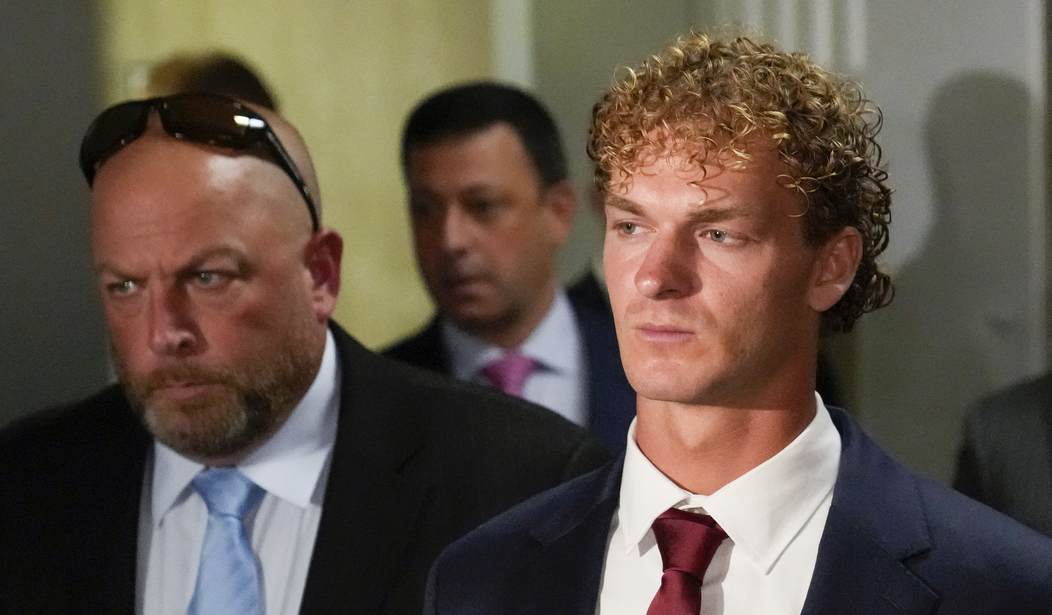
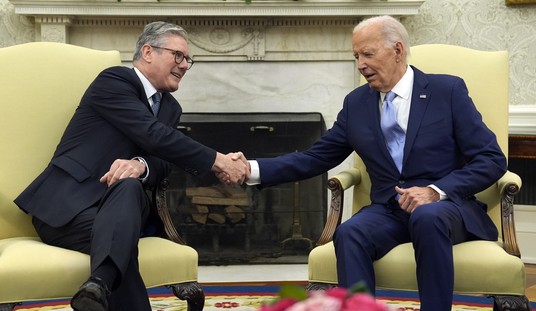
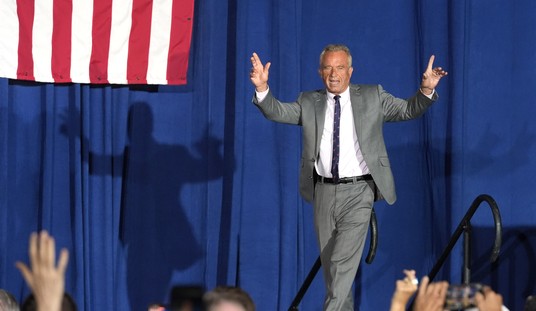
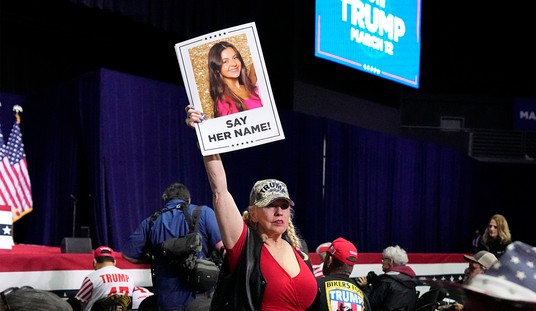
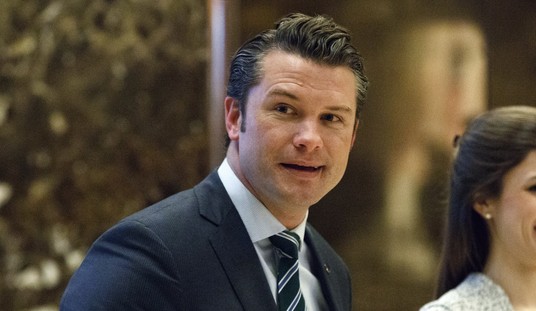
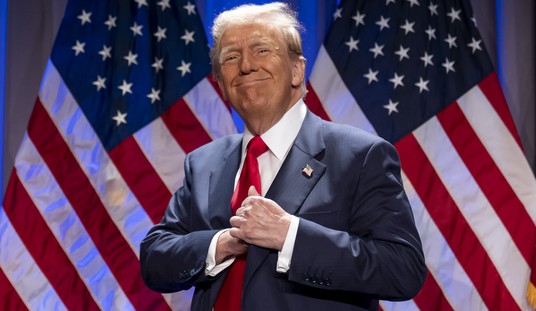
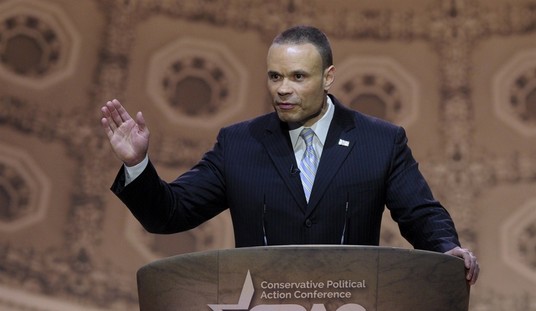
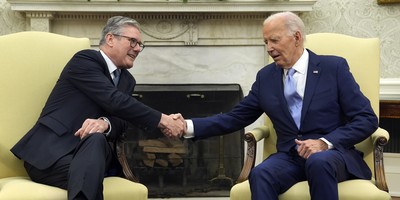
Join the conversation as a VIP Member